In the world of cyberpunk, technology is more than just a tool—it’s a force that reshapes every aspect of life, including spirituality. As humanity blurs the line between organic and machine, traditional notions of faith, the soul, and divinity are challenged and reimagined. Cyberpunk doesn’t just ask what we can become through technology; it also forces us to confront what we might lose or transform along the way. Religion, in its evolving forms, remains central to this journey, offering both a mirror and a counterpoint to the cold, mechanized futures the genre imagines. From AI worship to cybernetic rituals, cyberpunk explores how our quest for meaning adapts in a world where the boundaries between human and machine no longer exist.
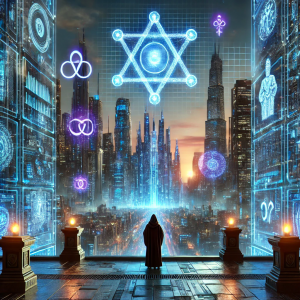
The Intersection of Technology and Spirituality
In the neon-lit, dystopian sprawl of cyberpunk, technology often becomes synonymous with control. Yet, in these cold, mechanized worlds, religion and spirituality resurface—sometimes in familiar forms, but often as strange, hybrid belief systems that challenge our deepest assumptions about consciousness, identity, and humanity itself. Through these speculative futures, cyberpunk dares to ask: What becomes of the soul when the mind can be digitized, when bodies can be replaced, and when gods may be made of code?
At the core of cyberpunk narratives is the tension between human autonomy and technological dominance. Advanced technologies—virtual reality, artificial intelligence, cybernetic enhancements—are not just tools but forces that redefine existence. As these worlds imagine new forms of human-machine interaction, they also return to ancient questions: What makes us human? What is the nature of consciousness? And where does the spiritual fit in a future where the lines between organic and synthetic blur?
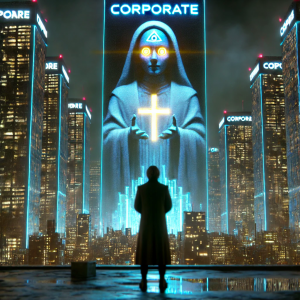
Religion as Resistance: Faith in a Mechanized World
Religion in cyberpunk often offers a counterbalance to the oppressive, corporatized societies that dominate the genre. Organized religion, when it appears, is frequently portrayed as yet another mechanism of control, bending to the will of corporations or political powers. But individual faith? That’s where the real tension lies. Characters find solace, hope, and meaning in belief systems that offer something deeper than technological escape—something profoundly human in a world designed to strip them of their humanity. Cyberpunk stories often use religion to explore this tension, asking how spiritual beliefs might evolve in a reality where technology threatens to eclipse everything, even the soul.
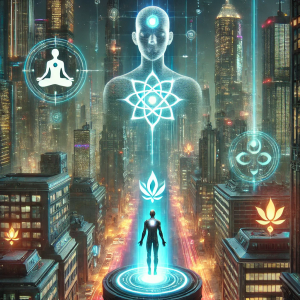
The Blurring of Consciousness and Identity
One of the most intriguing aspects of cyberpunk is its treatment of consciousness and identity. The genre loves to push the limits—can consciousness exist outside the body? Can minds be uploaded, transferred, or even recreated? When cyberpunk plays with these questions, it often finds itself grappling with deeply spiritual themes. In works like Ghost in the Shell, the line between human and machine is blurred to the point where characters must ask themselves what, if anything, remains of the soul when the body is no longer organic. And then there’s the matter of AI. As artificial intelligences transcend their original programming, they often become god-like entities—beings of immense power, worshiped or feared, depending on the context. In some cyberpunk worlds, AIs are the new gods, and their followers treat them as such.
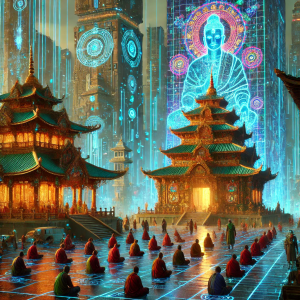
Syncretic Religions: The Evolution of Faith
The idea of techno-religion is a hallmark of the genre. From the spacefaring Rastafarians in Neuromancer to the Church of the New Revelation in Do Androids Dream of Electric Sheep?, cyberpunk is rich with examples of syncretic religions that blend traditional faiths with new technological paradigms. These belief systems reflect real-world anxieties about how religion might evolve as society becomes more and more intertwined with technology. Whether it’s the worship of AIs, the veneration of cybernetic enhancements, or the pursuit of digital immortality, these hybrid faiths imagine what spirituality might look like in a world dominated by machines and data.
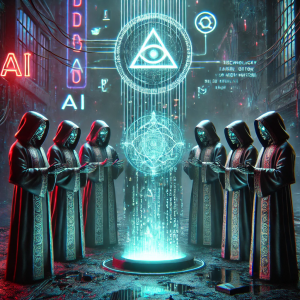
Techno-Cults: Worship at the Edge of Technology
And then there’s the darker side of cyberpunk spirituality—techno-cults and fringe movements that push the boundaries of belief and technology. These groups often blend technology with esoteric practices, creating rituals that are both unsettling and fascinating. In Warhammer 40,000, for instance, the Adeptus Mechanicus treats cybernetic augmentation as a spiritual practice, a form of ascension through technology. Meanwhile, in Cyberpunk 2077, cults engage in gruesome cybernetic rituals that blur the line between religious devotion and technological obsession. These groups worship AIs, believe in digital afterlives, and seek transcendence through technology, reflecting the genre’s ongoing critique of both blind faith in machines and the rigid structures of traditional organized religion.
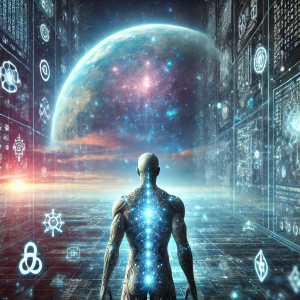
Post-Human Spirituality: Transcending the Organic
Perhaps one of the most compelling aspects of cyberpunk spirituality is its exploration of post-humanism. In these narratives, the boundaries between human and machine dissolve entirely, and with it, the notion of the soul as something inherently tied to an organic body. Characters in these worlds often seek enlightenment or immortality through digital transcendence—uploading their consciousness into virtual realms, merging with AIs, or achieving godlike omniscience through cybernetic enhancement. The spiritual quests in post-human narratives are not about the soul escaping the body, but about the soul finding new forms of existence, new definitions of what it means to be human—or, perhaps, more than human.
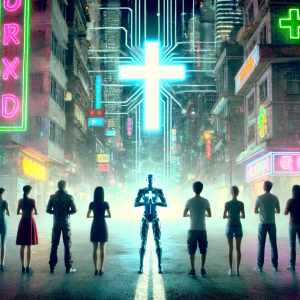
Faith in a Dystopian Future: Humanity’s Enduring Quest
At its core, cyberpunk’s exploration of religion isn’t just about faith in a dystopian future—it’s about how we, as humans, adapt our spiritual beliefs in response to radical technological change. These narratives force us to confront the uncomfortable truth that technology is reshaping not only our societies but our very selves. And in that reshaping, religion—whether in its traditional forms or as part of some new techno-mysticism—remains a vital part of the conversation.
In a world dominated by technology, faith still finds a way. It evolves, adapts, and sometimes fights back. And in the dystopian landscapes of cyberpunk, it reminds us that, no matter how advanced our machines become, the search for meaning, for something deeper than code, will always be part of what it means to be human.

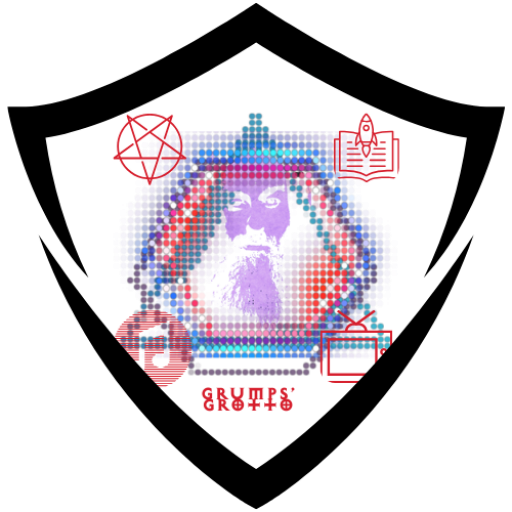
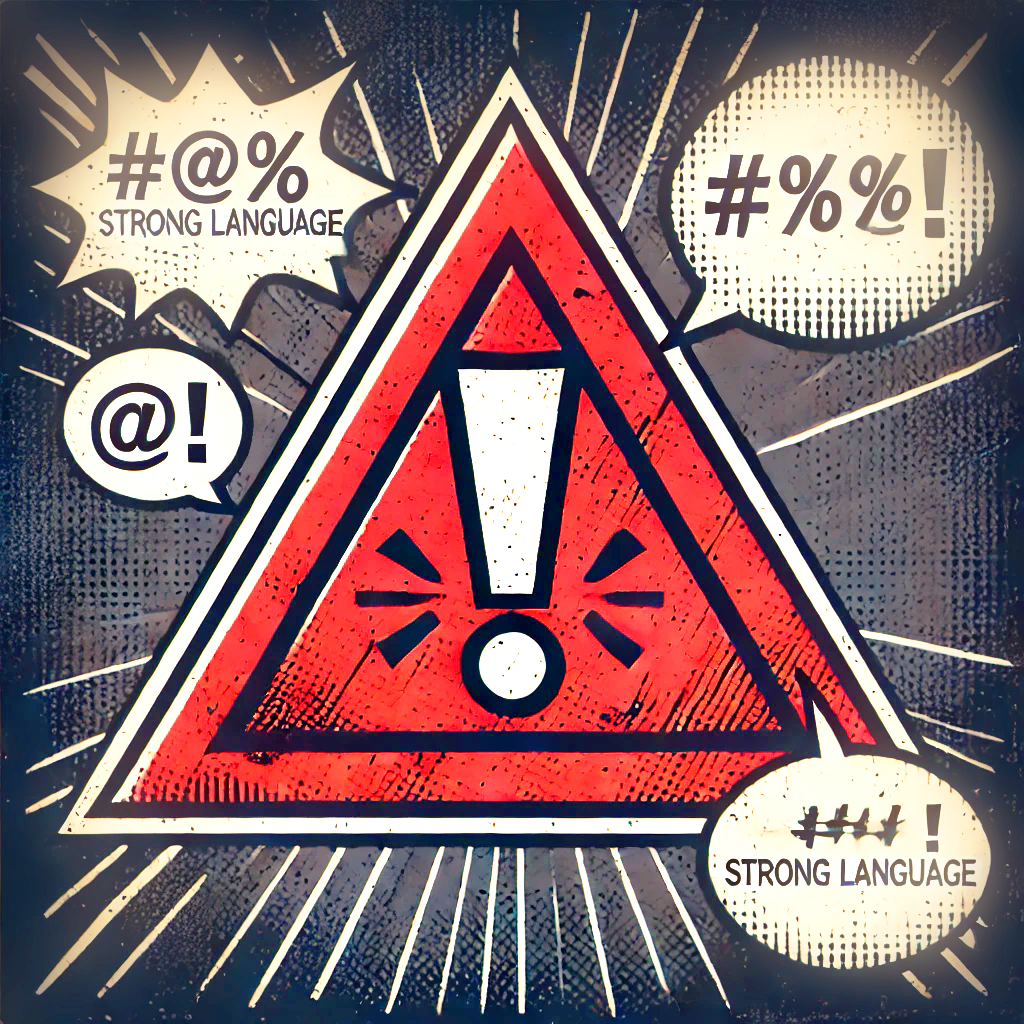
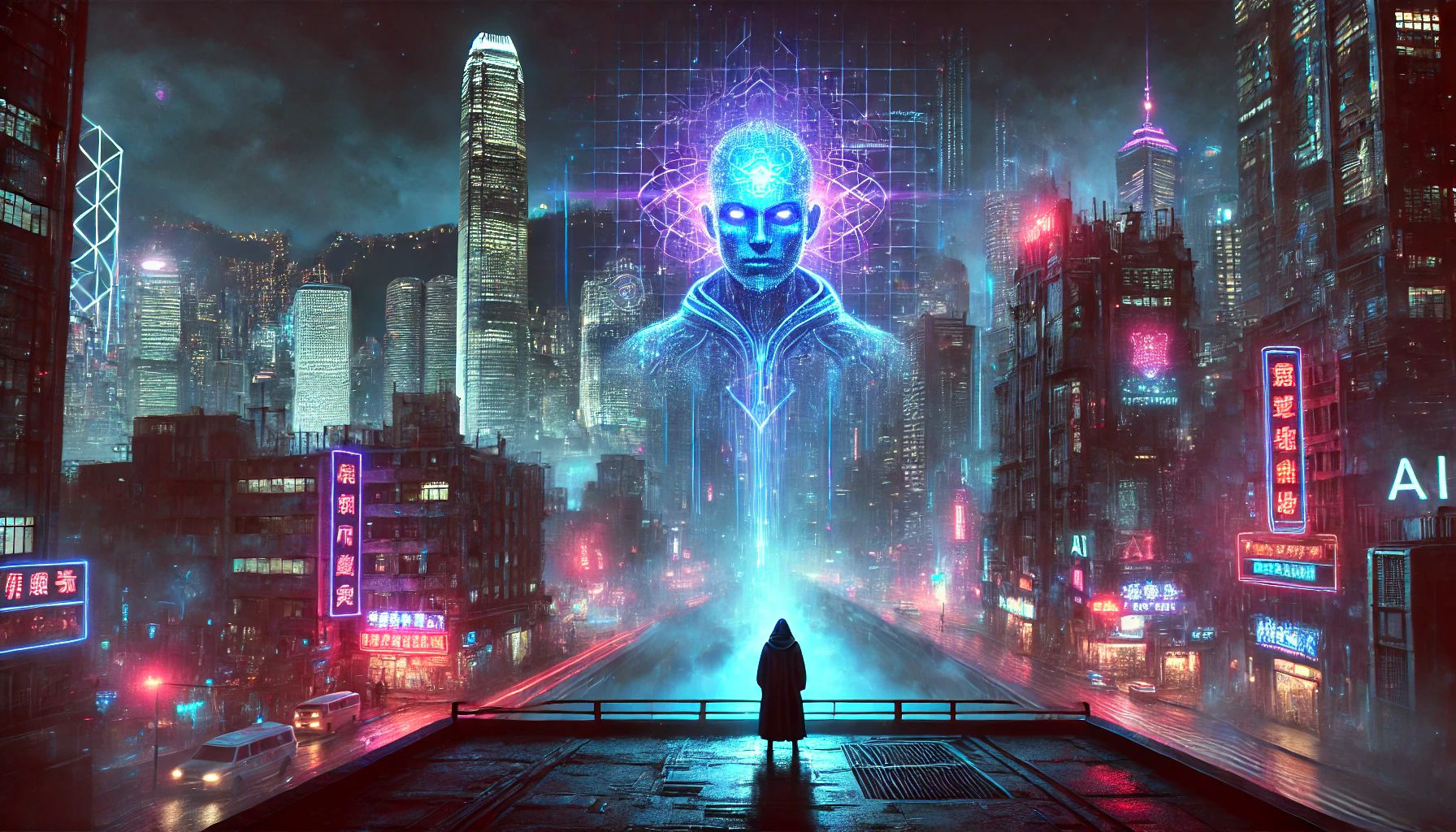
Leave a Reply